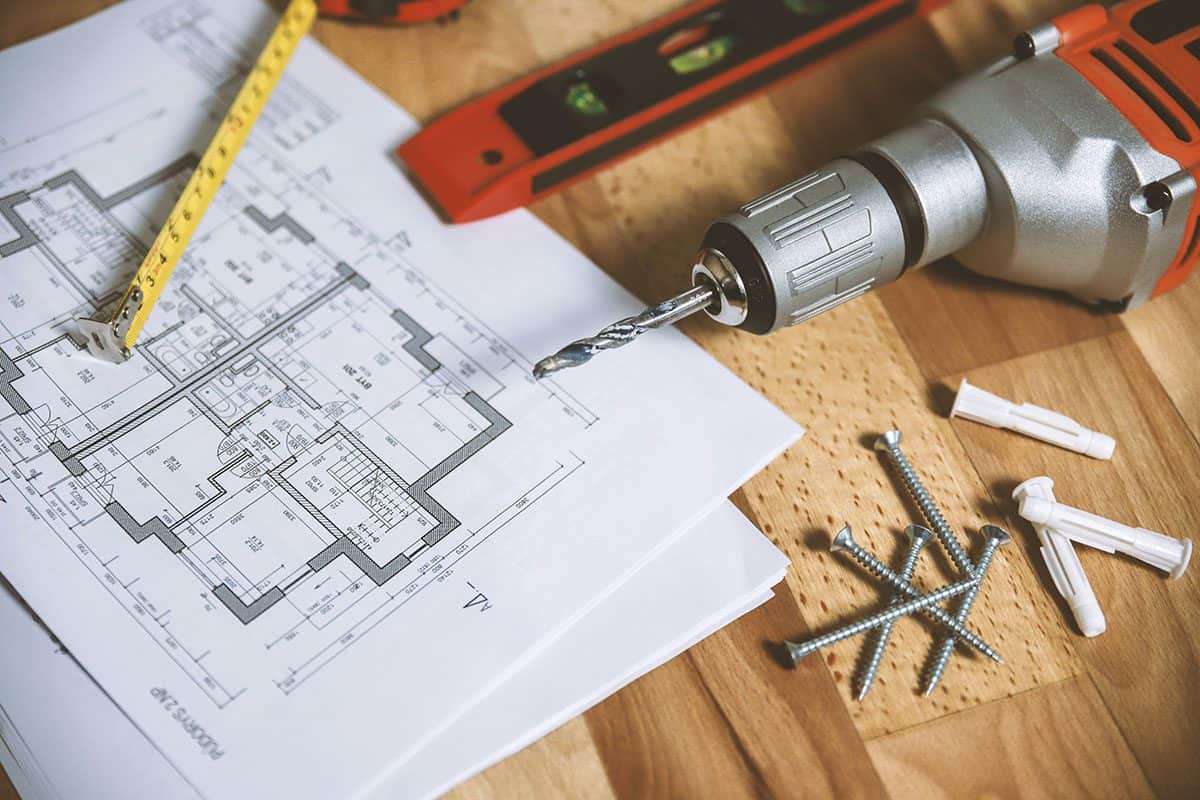Time to remodel and you may be looking for answers for what home remodeling work requires a permit. Read on to find out the main home improvements or remodeling that requires a permit and which ones do not.
Whether updating your kitchen, designing a whole new landscaping for your backyard, or updating your roof, you may be wondering if you really require a permit for those things. The best way to find out for sure, is to either visit your local city building department. Or to call a licensed contractor to find out. You may even wait for the estimate process to find out.
What is a permit exactly?
Just as it sounds, a permit is a filed document that contains in attachment any documentation needed for a remodel. These include plans (if required), structural calculations (if required), and other specs that relate to your project. In addition, some cities require neighbor awareness signatures so they will give you forms to have your neighbors sign. Also some cities have specific requirements for how to dispose of building materials.
Finally, you will have an inspection form that will contain a list of each type of inspection that is performed through the project. These will include a line for the inspector to sign off that it was completed. The city will issue something called a certificate of occupancy in most cases to show that a project is going on. Permits once issued have an expiration, normally 6 months to a year. At that time, you can renew if you’re not done yet. But letting your permit expire can be a big hassle to reapply. This process is tedious and usually done by the general contractor you hire for work.
You can also pull a permit as a homeowner, but it’s easier to let a contractor with experience handle it. Once a permit is finalized by the city, your work is deemed “permitted.” Any remodeled and permitted work is normally assessed as well by the city assessor for tax purposes.
When do I need a permit?
Most cities in California require a permit in many remodeling scenarios. These include new structures like additions, ADUs. Basically anything that would change the floorplan/blueprint of the house. Conversions such as a garage to a living unit. Items that attach to the house like patio covers. Fences over 6′ tall, fireplaces, pools, retaining walls, and changes done for accessibility purposes.
Most cities say they require permits for remodeling kitchens and bathrooms. However, if you are not moving electrical, plumbing, gas or mechanical (ventilation) structure, you may be able to avoid it. However, one thing to keep in mind is that building codes change over time. What’s required now in a house is different from 10+ years ago. Examples of this are how many outlets are required in the kitchen. Or whether they are GFCI or AFCI protected, and where they should go. In the past mechanical vents (exhaust fans) in the bathrooms were not necessarily required. Especially if a window was present. But now they normally are.
Cities also like to be on top of things like changing doors, windows, stucco and any exterior changes. But most people don’t tend to get permits for these things. If you do not use a permit where it would normally be required, it’s important to hire a licensed, experienced and knowledgeable contractor with insurance. And in situations where there could be structural changes, to get an engineer plan in place. If you think about it, why go to the trouble of getting plans and spending a lot on remodeling. And then NOT getting a permit when it’s required. It’s one extra step to ensure safety and correct work.
So what is not required to permit?
Generally exempt items from permits include any tool or storage sheds under 2 stories, and under 1500 square feet. Any smaller fences under 6′. Retaining walls under 4′. Treehouses, canopies or awnings. Regular driveways, walkways, decks, prefab swimming pools, animal cages/coups, painting, papering, tiling, carpeting, cabinets, countertops, any easily removable structures like cases, racks, shelving, partitions. Small replacements like faucets, toilets, sinks, garbage disposals, appliances, outlets, switches, light fixtures. Things that are normally done by handymen or as part of a larger job, the city is not going to go after you for these things.
Cities are most concerned with 1 thing: Safety. And that mostly involves structural changes that could affect the integrity of the building that is standing above your head. For instance, they will care about soil, grading, sloping, what framing materials are used and where. And if you’re following all the proper engineering requirements for a safe structure.
What if I don’t want to get a permit and deal with the city?
There are a few situations where you might not want to get a permit. Sometimes you are doing a project but there had been work done recently on the house that was not permitted. The city could notice and ask for permits on those items after the fact. Even so, it’s always best to get a permit in those situations if you can. Don’t get intimidated by what it would take to get the past work permitted. Sometimes it’s really not as bad as one would think.
Sometimes you can get a pass if you say the work was done long ago. That you’re not at all aware of when or how and don’t feel you should be responsible for it. Some cities understand this scenario, especially if the work was performed over 10 years ago. But it’s also in your best interest as a homeowner to get all work and structures permitted. That way, if you were to sell the house you wouldn’t run into an issue.
Also, the past work could be subpar or something dangerous was noted. Maybe loose wires, or wrong materials used that could be hazardous or cause a fire. This could potentially save you lots of money in the long run even if there’s an unpleasant fee in the short run. In general, getting a permit always will save you from future headaches. And it keeps your contractor on their toes because they can’t cut too many corners, or get away with something not to code if the work is being inspected. The fees are really not high compared to the remodeling cost itself, and normally the contractor will build those fees into their prices. For more information you can contact us.
Should I ask my contractor to do the work without a permit if it’s required?
Technically since it’s not allowed by the city to do work unpermitted, you could potentially be putting yourself and your contractor in some risk. If you do this and the contractor is ok with it, especially if it’s not a big job, the contractor should provide you a release form to release them from liability should anything occur and to state that you know the work is not being done with a permit though required normally.
We hope this helped you decide whether or not you should seek a permit. As mentioned above, it’s always a good idea to either visit your city’s website or go to the city building department in person and ask questions about your project, what is required, how much it costs and what is the process for pulling that permit.







